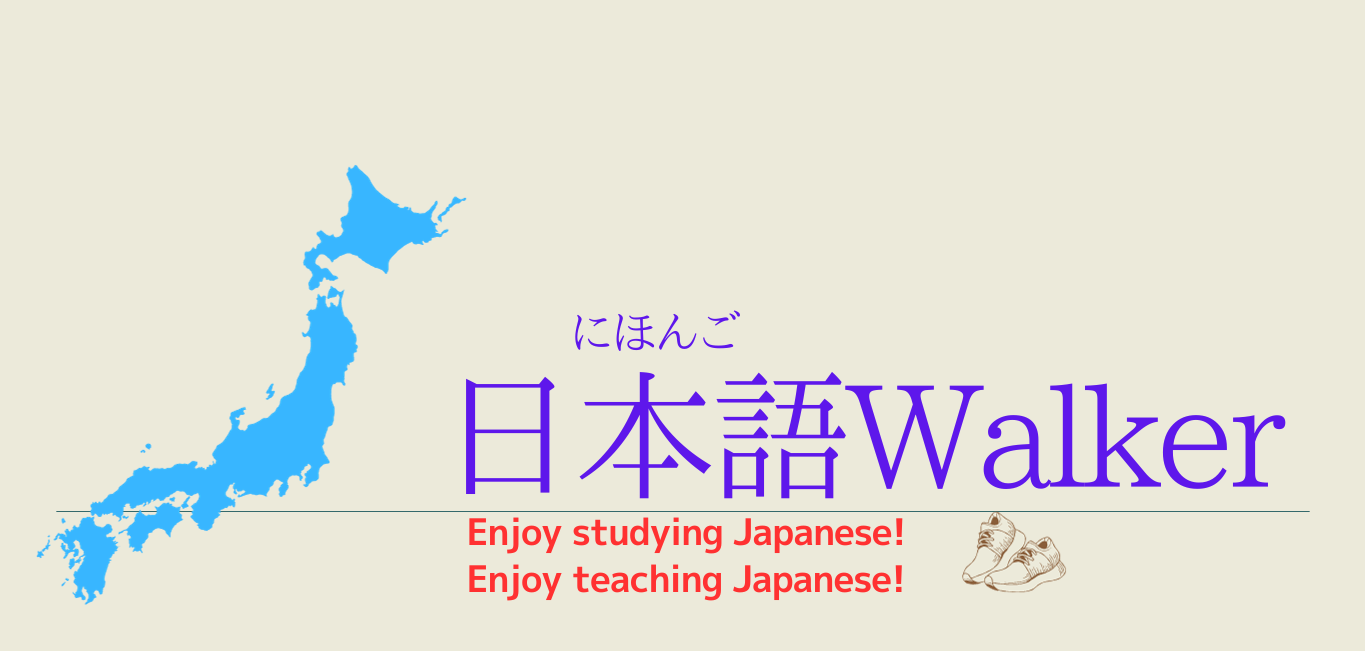日本語中級レベル以上の方。
For those at an intermediate level or higher in Japanese.
あなたは「日本語が上手ですね」と言われたことがありますか?
Have you ever been told that your Japanese is good by Japanese people?
ある方は、自信(じしん)をもってください。そしてそのまま進(すす)んでください。
If so, be confident and keep on going.
でも!However…!
相手(あいて)は、その後に心の中でこう続(つづ)けているかもしれません。
He/She might continue in his mind like this;
「でも、奇妙(きみょう)なところもあるな。やはり外国人だから、仕方(しかた)ないね。日本語で何も話せない外国人もいるんだから、そういう人よりはずっといいよ!」と。
“However, your Japanese has some unnatural aspects. Well, it’s understandable since you are a foreigner. Although there are foreigners who cannot speak any Japanese, you are much better than them!“
どうして日本人はすぐに「日本語が上手ですね」と言うのでしょう?
Why do Japanese people often say to foreigners, ‘Your Japanese is good!’?
この記事(きじ)は、そんな疑問(ぎもん)をもつ方にお勧(すす)めします。
This article answers such questions.
「日本語が上手ですね」と言う理由① Because of an island nation!
日本は、島国(しまぐに)です。 Japan is an island nation.
だから外国人に慣(な)れていない人、特(とく)に高齢者(こうれいしゃ)は、今も外国人と会うとかまえたり、不安(ふあん)になったりします。
So people, especially elderly people who are not accustomed to foreigners, still feel apprehensive when meeting foreigners even today.
そういう日本人は、外国人は日本人とまったく違(ちが)う、と思(おも)い込(こ)んでいるのです。
Such Japanese people tend to think that foreigners are completely different from themselves.
その外国人が日本語を話すと驚(おどろ)いたり、信(しん)じられなかったり、嬉(うれ)しかったり。複雑(ふくざつ)な感情(かんじょう)を持つことがあります。
They may feel surprised, incredulous, happy, or experience complex emotions when foreigners speak Japanese.
そういうとき、「日本語がお上手ですね」と言ったりします。・・・「こんにちは」と言っただけでも、です。びっくりですね。
In such situations, they often say, “Your Japanese is very good.”—even if it’s just a simple word like “こんにちは.” It can be quite surprising!
THE 島国(しまぐに)、です。 This is the SHIMAGUNI, island nation!
「日本語が上手ですね」と言う理由② Because Japanese people think Japanese language is very difficult.
日本語のことを、世界でもとても難(むずか)しい言語(げんご)だと思っている日本人がたくさんいます。
Many Japanese people consider the Japanese language to be very difficult.
そして、そういう難しい(あるいは、珍(めずら)しい)言語を話す自分たちの文化(ぶんか)に誇(ほこ)りを持っています。
And those who speak this challenging (or perhaps unusual) language take pride in their cultural heritage.
実際(じっさい)、日本語は習得(しゅうとく)が難しい言語だという専門家(せんもんか)もいます。
In fact, some experts acknowledge that Japanese is indeed a difficult language to master.
日本語が難しいと言われるのは、字が三種類(しゅるい)【ひらがな、カタカナ、漢字】あることや、敬語(けいご)が複雑(ふくざつ)なこと、同音異義語(どうおんいぎご)やオノマトペが多いことなどが原因(げんいん)ではないかと思います。
The reasons for Japanese being considered difficult include having three writing systems (hiragana, katakana, and kanji), complex honorifics, numerous homophones, and a wealth of onomatopoeic expressions.
でも、それは日本語の特徴(とくちょう)であるだけです。
However, these are just characteristics of Japanese language.
外国の人が日本語を話すのを聞く時、日本人は「日本でしか通(つう)じない、このとても難しい言語を、この人は一生懸命(いっしょうけんめい)勉強したんだ、大変(たいへん)だったでしょう。えらいなあ!」と、思うのです。
When Japanese people hear foreigners speaking Japanese language, they often think, “This person diligently studied this very difficult language that is only understood in Japan. It must have been tough. Admirable!”
それが「日本語が上手ですね」と言う言葉として出てくるのです。
This sentiment is expressed through phrases like “Your Japanese is good”.
「上から目線(めせん)」に感じるかもしれませんが、日本人の誇りや、相手への称賛(しょうさん)、感謝(かんしゃ)などのこもった言葉なのです。
Although it may come across as a bit condescending, it actually reflects Japanese pride and genuine praise or gratitude toward the speaker.
「日本語が上手ですね」と言う理由③ Because people read the air!
「あなたはもっと日本語を勉強した方がいいですよ」なんて言う日本人はまず、いません。
Japanese people don’t say “You must study Japanese harder.”
多少(たしょう)不自然(ふしぜん)でも拙(つたな)くても、日本語を話す相手には「上手ですね」と言う日本人がほとんどです。
Even if it’s a little unnatural or clumsy, most Japanese people will say ‘You’re good at Japanese!’ to someone speaking it.
それはマナーのようなもの。
It’s like etiquette.
その場(ば)の空気(くうき)を和(なご)ませるために、褒(ほ)めるのです。
They praise to lighten up the atmosphere.
その場の空気を読んでいるのです。
They are READING the ROOM.
ただし!However,
これを真(ま)に受(う)けて「ありがとう。日本語は3年勉強(べんきょう)しているので、自信(じしん)があるんです」なんて答えると、日本人は、少し、とまどいます。
if you say “Thank you. I’ve been studying Japanese for three years, so I’m confident.“, Japanese people are a little confused.
そこは「いいえ、まだまだです」と答えるのが無難(ぶなん)。
One of well-received responses is… “I’m not there yet, still have a long way to go.“
謙遜(けんそん)の美徳(びとく)です。
It is the virtue of modesty.
答え方には、他にもいろいろなバリエーションがあります。
There are many other ways to answer:
| ありがとうございます。あまり自信はないのですけれどね。 | Thank you very much. I’m not confident though. |
| 今はまだ勉強中ですが、これからもっと流暢(りゅうちょう)になりたいです。 | I’m still learning now. I want to improve in the future. |
| 自分ではあまりそう思わないのですが、うれしいです。 | I don’t think I’m very good at it myself, but I’m happy to hear that. |
| 励(はげ)みになります。これからもっと頑張(がんば)ります。 | You encouraged me. I will work harder from now on. |
| 本当にそう思いますか? お世辞(せじ)でしょう? | Do you really think so? You are just flattering me, aren’t you? |
・・・などなど。・・・and so on.
とはいえ、日本人の親しい友達との会話なら、もっとカジュアルに答えましょう。
However, you can respond casually among close friends:
「日本語、上手だよね!」 “Your Japanese is good, huh?” 「え~、ホントに? ありがと」 “Really? Thanks!“ |
まとめ:「日本語が上手ですね」…It’s up to you whether you believe it or not!
日本人はいろんな気持ちで「日本語が上手ですね」と言うのです。
Japanese people say “ your Japanese is very good.” with various feelings.
もちろん、本当に母語話者のように素晴らしい日本語を話す人にも、日本人は「上手ですね」と言います。
Of course, even when someone speaks Japanese as well as a native speaker, Japanese people also say “your Japanese is very good.”
つまり、その言葉をどのように受(う)け取(と)るかは、あなた次第(しだい)です!
So, it is up to you how to interpret the phrase.
とにかく!日本語学習の旅(たび)を、これからも楽しんでくださいね!
Anyway, enjoy your journey of learning Japanese!
GOOD LUCK!


コメント